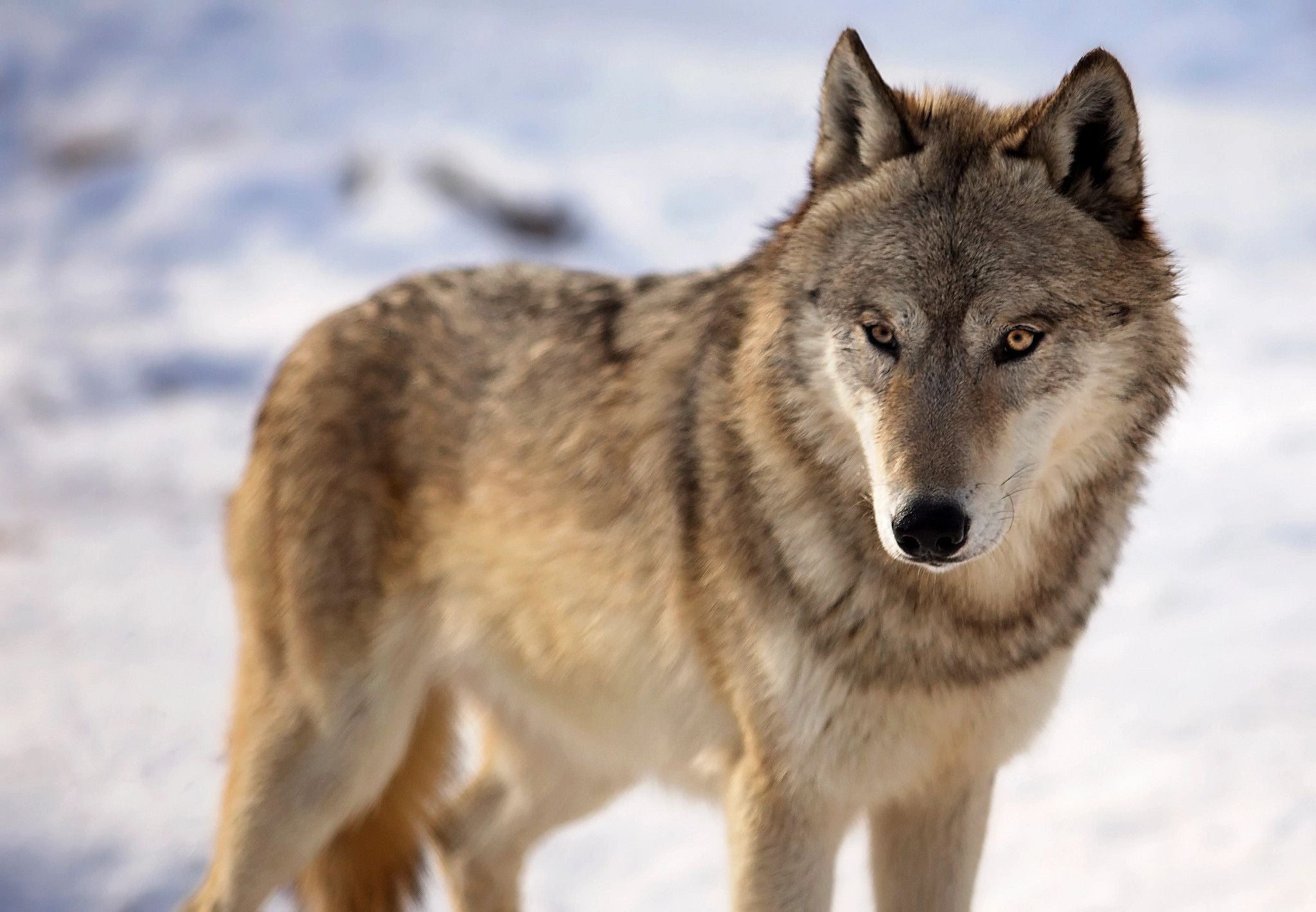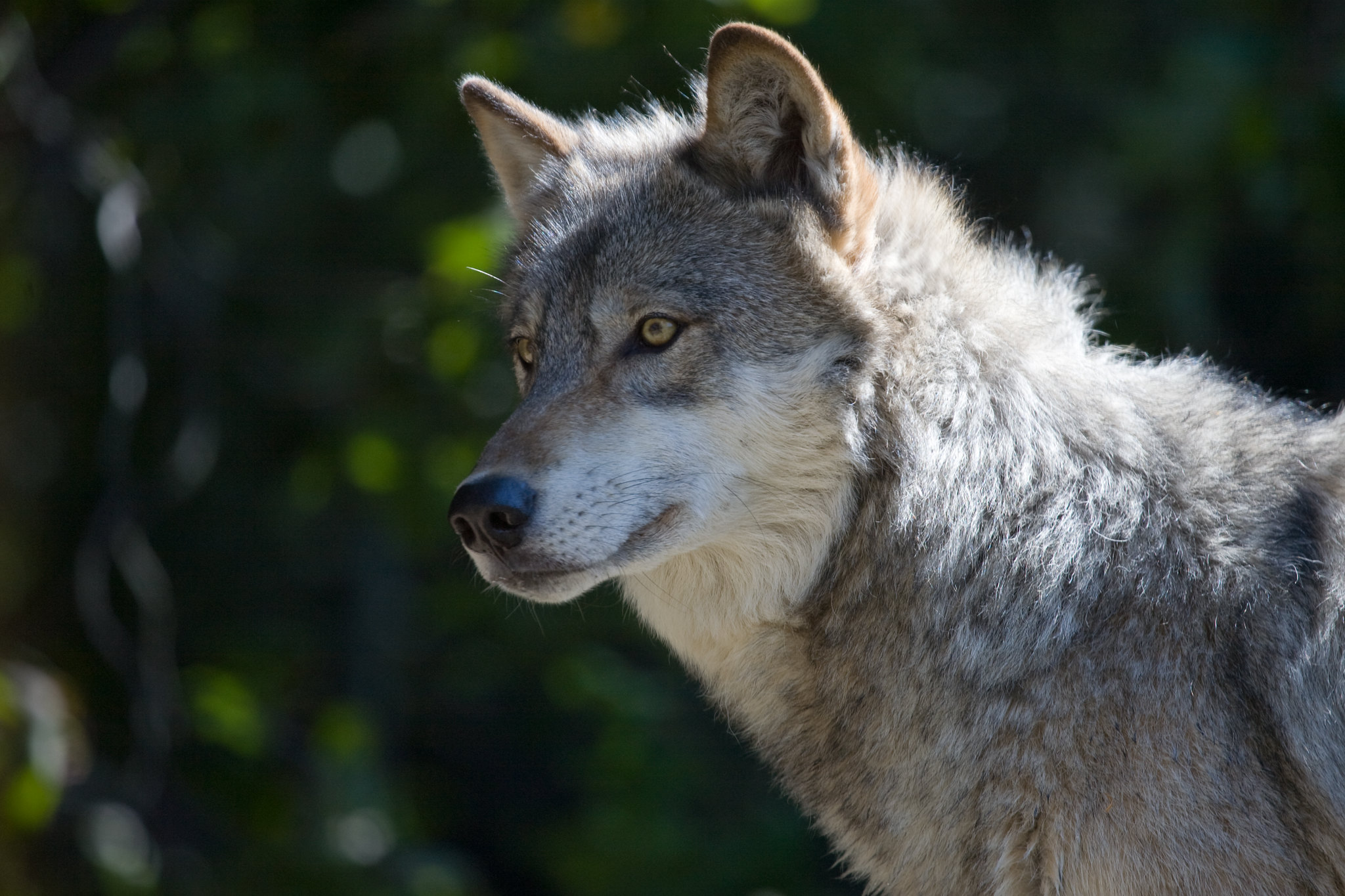State Republican lawmakers want the Natural Resources Board to require Wisconsin wildlife managers to immediately resume a wolf hunt. Members agree the law requires the state to hold a hunt, but the board appears split on whether the Wisconsin Department of Natural Resources needs to gather more information prior to resuming the season.
A dozen members of the state Senate and Assembly sent a letter to the board on Jan. 15 asking them to hold an emergency meeting to take up the matter. The board is set to meet Friday to consider their request.
The Trump administration announced it was removing federal protections for the gray wolf last fall across most of the country, including Wisconsin. The change took effect earlier this month. According to state law, when the gray wolf is not listed as an endangered species, the DNR is required to hold a wolf hunt from Oct. 15 through February.
Stay informed on the latest news
Sign up for WPR’s email newsletter.
In the letter, lawmakers wrote that the state may not have the option to manage its population soon because groups are seeking to restore protections for the wolf. A coalition of wildlife and environmental groups sued to reverse the delisting last week, contending the animal hasn’t recovered to its historic range.
“Since the wolf delisting happened during this season timeline, we believe a hunting season should happen immediately,” wrote lawmakers.
The letter follows a joint informational hearing on the wolf hunt in which Republican lawmakers, as well as some hunting and wildlife groups, expressed frustration and anger with the DNR’s decision to resume the season in November this year. Farmers and hunters have lobbied for state management of wolves as they’ve lost livestock and dogs from wolf encounters.
The DNR has said it needed more time to develop a science-based harvest quota and gather input on wolf management, as well as update the state’s wolf management plan.
The Natural Resources Board has authority to set policy for the agency, such as setting harvest quotas. Board Chair Fred Prehn hasn’t yet decided on the lawmakers’ request. He wants to hear from agency staff and the public before making a decision. But, he doesn’t think delaying the season until November is going to change the state’s estimated harvest quota.
Prehn said he and other board members realize the wolf hunt is a “hot button issue” with strong feelings from those who support and oppose a season.
“But that being said, there’s a statute that’s out there that I think we need to adhere to, and we need to manage this resource. This is going to be one of the steps that we take towards it on Friday,” said Prehn. “If we move forward with the hunt, then we move forward. If we don’t, then we update the management plan.”
The state’s wolf management plan was approved in 1999 and last updated in 2007, setting a goal of a population of 350 wolves for the state. That figure was based on a projected population that is much lower than the more than 1,000 wolves that now inhabit the state based on the most recent count.
Prehn said it’s appropriate to update the plan, but he doesn’t think the current version rules out the possibility of a wolf hunt through February. Board member Bill Smith said the law is clear that the state will hold a wolf hunt. But, he said it’s important to consider whether the agency has solid science to manage the wolf population, highlighting outdated information.
“I think the question is how to do this in a defendable fashion and an appropriate fashion, so we need to make sure the science is adequate,” said Smith. “And, I think we also need to reach out to some of the partner groups, citizen groups that are heavily involved in wolves, and give them an opportunity for important discussion.”
Board member Marcy West said she’s open to hearing from all sides on the matter, but she would like to get “back to the biology” of wolf management.
“Let’s get as much accurate information as we can, get a management plan together, (and) not get into some sort of legal trouble or upset any of the stakeholders before we get going on this,” said West.
Conservation group Wisconsin’s Green Fire has recommended the DNR maintain the wolf population near levels seen in the last several years until a new plan is in place.
Greg Kazmierski, the board’s vice chair, said the state has more than enough science to set a “reasonable” harvest quota on wolves. He would like to see the board hold a hunt this winter.
“We spent a lot of years in court fighting as a state to get the ability to manage our wolf population. And, now (that) we got it, we can’t just punt,” said Kazmierski. “We need to carry out our management plan and our management rules on wolves.
Hunters killed 528 wolves in the three seasons a hunt was held in Wisconsin before a federal judge ruled in 2014 that the animal should be placed back on the endangered species list.
More than 14,000 people submitted permit applications to harvest wolves in the last season a hunt was held in Wisconsin. Past seasons have harvested roughly 20 to 30 percent of the population.
Wisconsin Public Radio, © Copyright 2024, Board of Regents of the University of Wisconsin System and Wisconsin Educational Communications Board.



